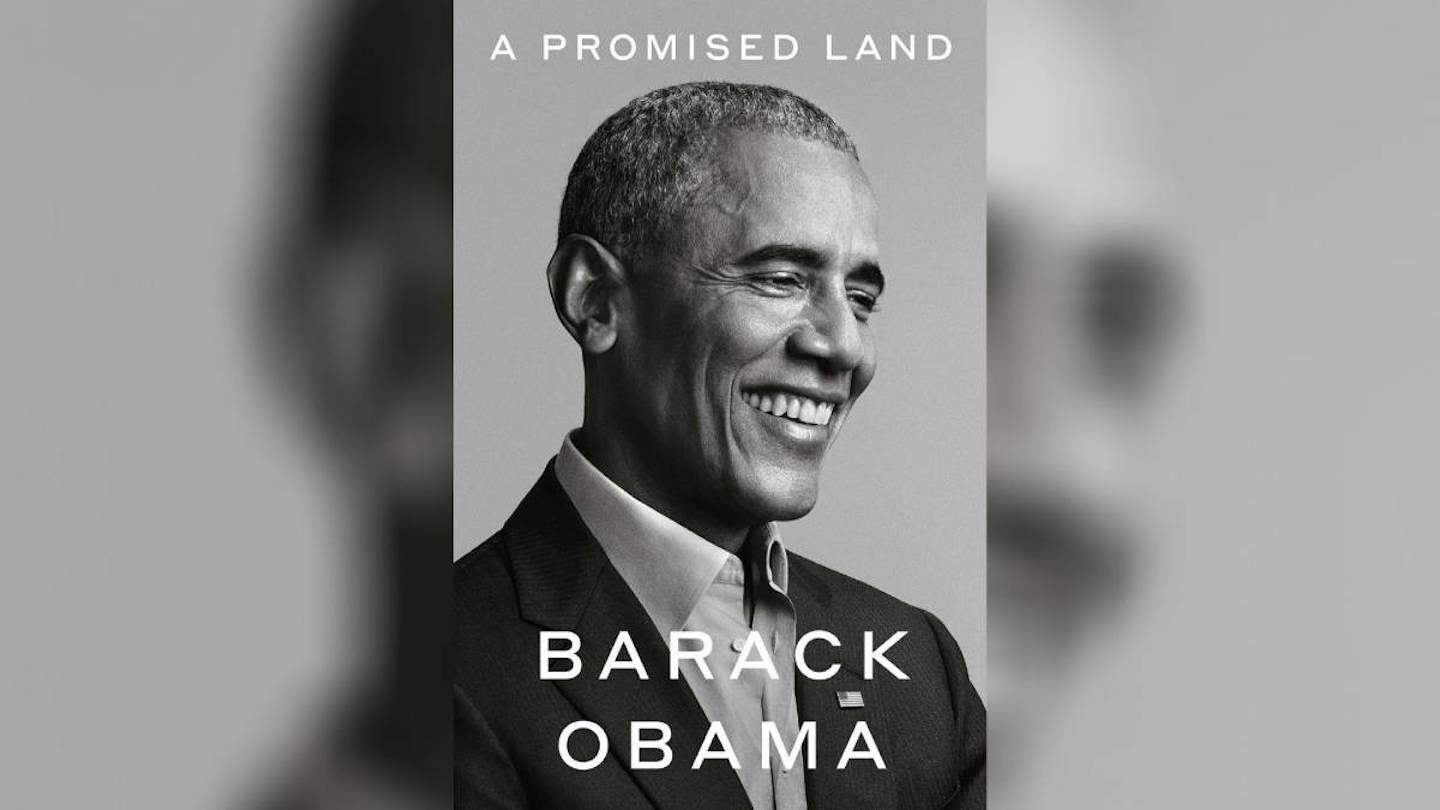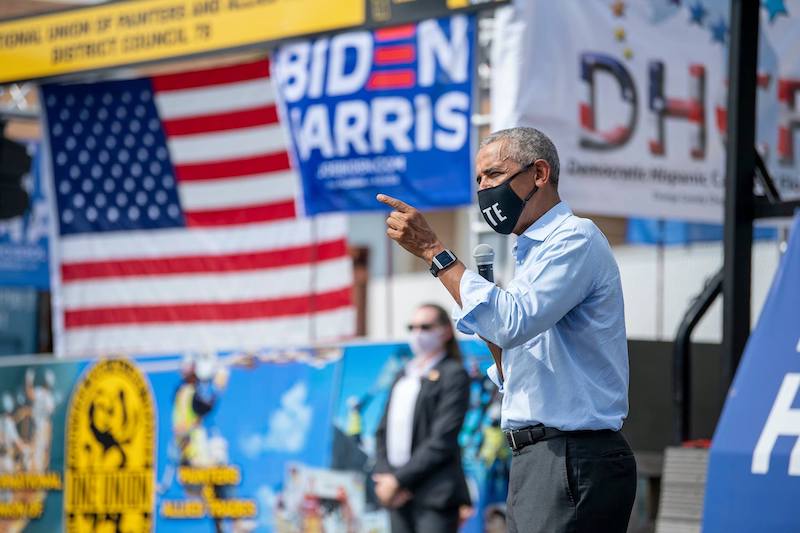
A Promised Land focuses on Barack Obama's presidency, and is the first of two volumes (All photos: Obamabook.com/Facebook)
Although I was excited to read former US president Barack Obama’s new memoir, A Promised Land, I was a little discouraged by the fact that it is 700 pages. The last book of this length that I undertook was Vikram Seth’s A Suitable Boy, at a time when I was still unencumbered by work or family. “I don’t think I have the fortitude for that many pages anymore,” I said to a friend of mine. But I’ve never been one to resist temptation very well, especially when the book was written by one of the most outstanding statesmen of our time.
Obama’s fourth book after Dreams from My Father, The Audacity of Hope and children’s book Of Thee I Sing, A Promised Land focuses on his presidency, and is the first of two volumes. The book seems very long for just that period — especially when you consider that Nelson Mandela’s A Long Walk to Freedom, which is about his whole life, is just 617 pages. I feel that Obama, talking about nothing more than his campaign and initial years in office, could have done so in less. But as far as criticism of this book goes, though, I have none other than its length because it is a riveting read from the get-go.
Within the genre of political literature, Obama scores high marks for his writing style. Poetic and nuanced, he has a delightful way with words and tells stories in a most disarming way. In her review for The New York Times, Nigerian writer Chimamanda Ngozi Adichie says, “It is not merely that this book avoids being ponderous, as might be expected, even forgiven, of a hefty memoir, but that it is nearly always pleasurable to read, sentence by sentence, the prose gorgeous in places, the detail granular and vivid.” Okay, so we’re all acknowledging that the book is long, then.
In fact, Obama does too. In his preface, he says his initial intention was to be short, but when he started to explain the more complex decisions of his presidency, “I found my mind resisting a simple linear narrative”. This wordiness has served him well in this regard — in providing context for some of his decisions; opting not to relegate important explanations to footnotes and instead laying it out in his trademark accessible language is indeed a gift to the many who have no way of knowing the thinking behind what he decided to do and why.
Another reason the book is long is because Obama achieved quite a bit in a short amount of time, and he understandably devotes a good amount of literary real estate to it. This was a one-time senator who came to power in the middle of a massive financial crisis and two failed wars under a banner of hope and change, and a lot did. He performed triage on a haemorrhaging economy, introduced a form of affordable healthcare, rescued the car industry, appointed a Latina to the Supreme Court and signed the Affordable Care Act into law, among others.

Obama started writing A Promised Land after he left the White House, putting pen to paper — his love for longhand is charmingly old-fashioned — as he wanted to record this momentous eight years in his and his family’s life, and also in the US, just as Donald Trump was taking on the mantle. It is somewhat poetic that the book should be published in the days after Trump’s crushing defeat in the US presidential election. In the passionate way Obama writes about what he did for the country, it somehow comes across as a reminder of how the Trump administration seemed to work so hard to undo it. I suppose I can understand what a salvo this book must be, with its beautiful language and tender descriptions, after four years of a president who preferred to make his point on Twitter in all caps.
Enjoy as I did the detail Obama goes into when it comes to economics, law and foreign policy — an excellent communicator by nature, he explains all this remarkably well — what is really most endearing about the book is the stories he tells about his family: Michelle, Sasha and Malia, as well as the extended community of people who cared for them at the White House.
Obama writes lovingly of “the most senior butlers” in the White House, who were “a pair of big, round-bellied Black men with sly senses of humour and the wisdom that comes from having a front-row seat to history”. I absolutely enjoyed reading about the way he loved the gardens at the White House, the quiet walks along the West Colonnade walkway, where he would gather his thoughts in the morning before work or quiet his mind while on the way back to Michelle and the girls.
While this book is more political than personal, Obama’s anecdotes about his family stand out for the beauty in which he recalls each memory. Malia in her first pair of ballet tights, Sasha’s giggles as he nibbled her toes, his mother Stanley Ann sucking ice cubes for comfort in the final stages of her cancer. He writes most lyrically about Michelle and her profoundly enduring presence, which makes a woman we all already love seem even more likable. He tells of her wit and strength, and also her groundedness — Obama was woken up by an early morning call to inform him of his Nobel Peace Prize win, and when he tells her, she says, “That’s wonderful honey,” then rolls over to get a little more sleep.
Obama writes his autobiography in the hope of further discovering who he is. For a man universally adored and idolised — as far as politicians go, his celebrity status is unparalleled — it is not an easy thing to be so frank about his own insecurities. At the end of the first chapter, The Bet, he says, “The only person who questioned this smooth path of ascent seemed to be me. The big salaries being dangled, the attention — it felt like a trap.”
This searchingly introspective memoir offers the world a look at that insecurity, endearing in its honesty, and how Obama found his way as a president entrusted with the hope of millions. His was not an easy journey, and in 700 pages, he gives us a glimpse into why. The book ends with one of his administration’s most triumphant moments — the capture and killing of Osama bin Laden — and the second part will complete the full extent of his presidency. Malia and Sasha would have been older, the US Congress would have turned Republican and the country headed towards a presidential election that no one could have predicted. There has been talk that Trump’s win may have been Obama’s fault — once that second book comes out, we may find out.
This article first appeared on Dec 7, 2020 in The Edge Malaysia.


